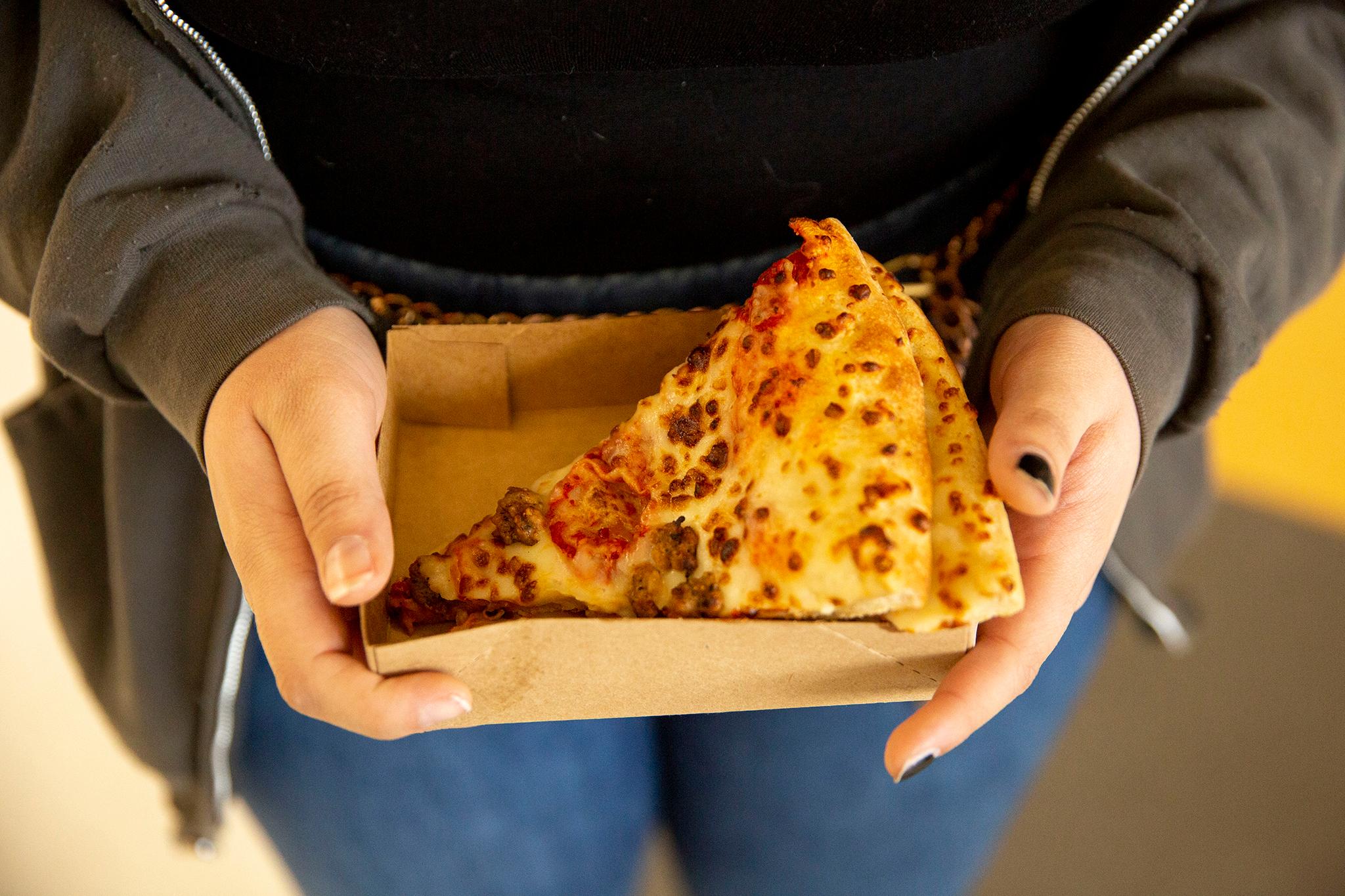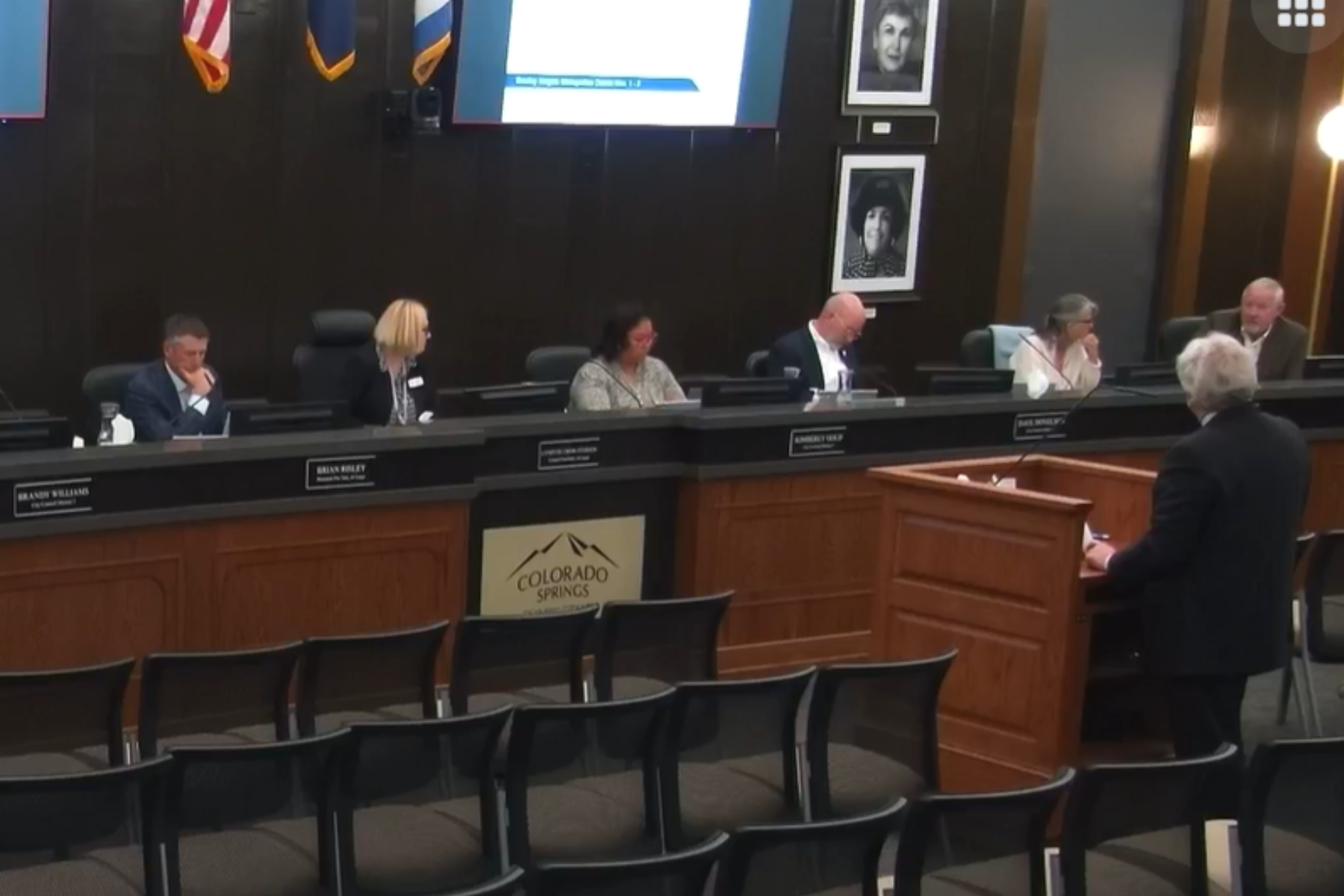
This story was produced as part of the Colorado Capitol News Alliance. It first appeared at coloradosun.com.
Teachers, farmers and food advocacy groups launched their campaign Tuesday for two initiatives on the ballot this November that would continue providing free meals to public school children and help shore up the federal food stamp program for Coloradans after the Trump administration made cuts to it.
Colorado voters will decide in November whether to raise taxes on those who earn more than $300,000 per year to fund the initiatives, known as LL and MM.
“We must vote yes on LL and MM to maintain the critical work that the Healthy School Meals for All program has pioneered,” said Daniel Asher, chef and owner of Boulder restaurant River and Woods. “Every kid in Colorado deserves access to nutritious healthy meals at school made with ingredients grown locally that support our hard-working farmers, ranchers and food artisans across our beautiful state.”
Colorado has been offering free breakfast and lunch to all public school children regardless of family income since 2023 after voters agreed in 2022 to start the program, funded by increased taxes on those making more than $300,000.
Previously, school meals were only available for kids of families who met a low-income qualification. Now, school districts ask families to apply for a federal school meal subsidy and cover breakfast and lunch for all kids, whether or not they qualify.
Since then, the cost of the program has exceeded projected tax revenue with a high demand for the meals.
The initial program was supposed to raise more than $100 million annually. But the first year of the program, the funds fell short by $56 million, Chalkbeat Colorado reported, and the second year was projected to have a shortfall, too.
During the first year of the program, the Department of Education saw a 37 percent increase in breakfast participation and a 30 percent increase in lunch participation, according to spokesperson Jeremy Meyer. Last year, the department saw an additional 5 percent increase in breakfast participation and 3 percent increase in lunch participation, Meyer said.
Last school year, 178 out of 179 school districts participated in the program, Meyer said. Only the Aspen School District did not.
Under the Taxpayer’s Bill of Rights, any revenue raised that is more than what a tax initiative is projected to raise has to be returned to taxpayers.
If voters approve the ballot initiatives in November, people who earn $300,000 or more will pay an extra $486 in taxes on average, the bill’s authors estimated. The initiatives are projected to raise an additional $95 million for the state, fiscal analysts say, and the state would get to keep any extra revenue to bolster the Supplemental Nutrition Assistance Program, also known as food stamps.
The Trump administration’s tax and spending bill signed into law in July, known as the One Big Beautiful Bill Act, cuts funding to states for managing the SNAP program and mandates new work requirements. It reduces the federal contribution from 50 percent of SNAP administrative costs to 25 percent, leaving states to make up the difference. Colorado estimates it will cost the state $50 million starting next year to cover the new work requirements and its share of the administrative costs.
Advocates for LL and MM say the new funding would allow for school districts to access grants to purchase food from Colorado farmers, increase wages for cafeteria workers, create parent and student committees to advise on culturally appropriate recipes and replace cafeteria equipment. It will also keep as much of the food stamps program intact as possible for people with disabilities, low incomes and older people.
Jen Frankel, a South High School parent in Denver who organizes a food pantry for school families, said she has been surprised by the number of families facing food insecurity.
“If voters do not turn out in November, hundreds of thousands of Coloradans, including children older, older people and people with disabilities will be in danger of going hungry,” she said.
Luzmar Arraíz, a mother of two Jefferson County school children, said she was surprised when her kids started school how bad the food was. She worked with other moms and the Jefferson County Food Policy Council to advise the district on better meals. Five of the group’s recipes were served as part of a pilot project, she said, including Venezuelan chicken with potatoes, a favorite among students.
“Vote yes so we can see districts across Colorado do what we did here in Jeffco to make sure kids around the city have good nutrition,” she said in Spanish.

Colorado Capitol Alliance
This story was produced by the Capitol News Alliance, a collaboration between KUNC News, Colorado Public Radio, Rocky Mountain PBS, and The Colorado Sun, and shared with Rocky Mountain Community Radio and other news organizations across the state. Funding for the Alliance is provided in part by the Corporation for Public Broadcasting.









